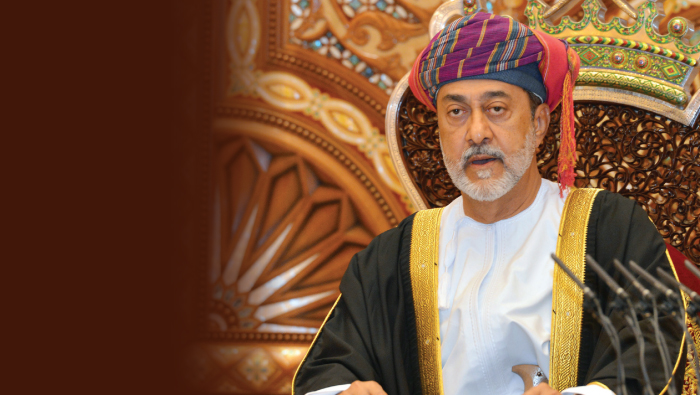
Muscat: Educators and academics in Oman have praised the long-term vision of the late His Majesty Sultan Qaboos bin Said bin Taimour, and are confident that the current Sultan, His Majesty Haitham bin Tarik, will continue the efforts established by his predecessor.
In his Royal Speech, which was delivered shortly after ascending the throne of Oman and being confirmed as Sultan, HM Haitham bin Tarik said of the late HM Sultan Qaboos, and his contribution towards education, “He built a sturdy and constant frameworks for education - at all its levels - and specialisations that are tapped by generations of citizens who relished knowledge and expertise.”
Professor Taha Al Lawati, who works at the Royal Hospital as a senior consultant breast oncoplastic surgeon, added, “I am an example of the emphasis on education that was made one of the priorities by the late His Majesty Sultan Qaboos bin Said bin Taimour.
“I started my education from Al Saidiya School in Oman then finished my high school at Jaber bin Zaid School and went all the way to Europe for my basic medical training, and then with the Oman Medical Specialty Board for the basic surgical training then to Europe again for fellowships from France and the Royal College of Surgeons to attain my Ph.D from one of the reputable universities there,” added Al Lawati.
“The journey did not end after receiving the highest degree of qualification, but it continued with me while representing Oman internationally as a visiting professor at the University of Peloponnese in Greece, and being the Executive President of the European Asian Society of Surgical Oncology based in Switzerland,” he added.
“All this was only possible because of the wise vision laid by the late HM Sultan Qaboos. He was the one who guided and paved this path for us for which we will be grateful for life.”
Dr Said Al Sawafi, a co-professor at the Department of Islamic Sciences at Sultan Qaboos University said, “We hope that His Majesty Haitham bin Tarik continues to follow the lines drawn by the late Sultan Qaboos, with modernisation, development, and attention to the economy, and we hope that God will help him do his tasks well.”
Adding to this, Dr Nuhaila Al Rawahi, a practicing educational psychologist in the Sultanate, said, “From 1970 to date, the number of schools have increased exponentially and education was made available to girls too.”
“And now, if you were to look at the progress in school education over the last five decades of the late His Majesty, education spans itself from nurseries, primary and secondary schools, special needs centres and associations, colleges and universities, and all of which are spread out throughout the country.
“I am a simple example of how education has allowed me to serve Oman,” she added.
“I attended one of the leading schools of my time and I was awarded a scholarship to study abroad and do my degree before I went on to complete my doctorate. My educational career has been possible due to HM. I am now a practicing educational psychologist who supports schools with children with learning difficulties.”
Al Rawahi went on to say, “Over 20 years ago, my brother was sent to a boarding school abroad due to learning needs that our schools could not cater to at the time. He accessed the provisions he required and he went on to complete his masters and is now working in a field he loves. 20 years later, I can confidently say that schools are moving towards inclusive education where every child, despite their varying learning needs, has the right to reach their full learning potential and be part of the school community.”
Dr Saqib Ali, who is employed as the head of department of Information Systems at the College of Economics and Political Sciences at SQU, said, “Words will not be enough to explain what His Majesty has done for us. The fact that he set up the university meant that he gave people in Oman an opportunity to add to their skills while inside the country. Oman has a very high number of PhDs, which shows how specialised they are in their fields, and many of them were awarded government scholarships so that they could help contribute to the country.
“SQU is also accredited with many bodies that some other universities in this region don’t have,” he added. “Many of these accreditations are given by bodies in Europe, and this helps with international cooperation, so you get to learn from specialists in other fields as well.”
Al Mahanad Al Badi, an English language instructor at the Musannah College of Technology, said, “The late Sultan Qaboos did a lot towards developing education in Oman, particularly in terms of higher education. SQU is a really good role model for other institutions of higher education, and I am really proud to be a graduate of a university that has his name.”